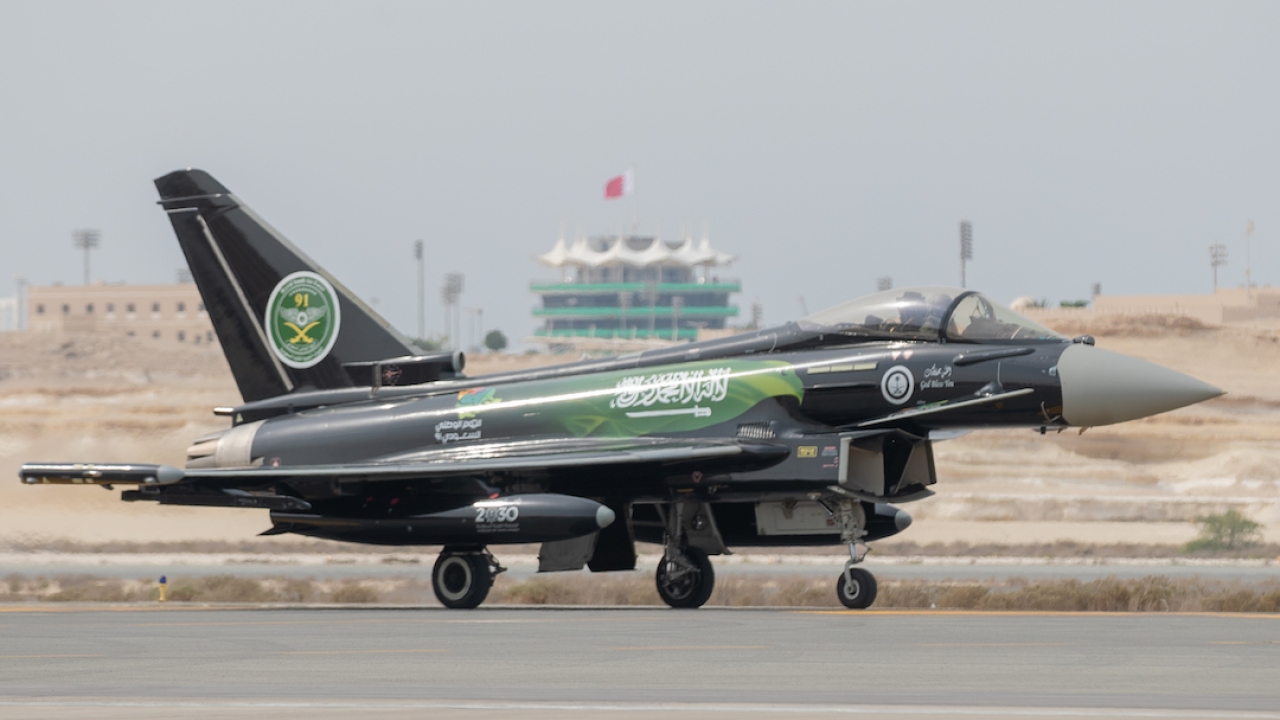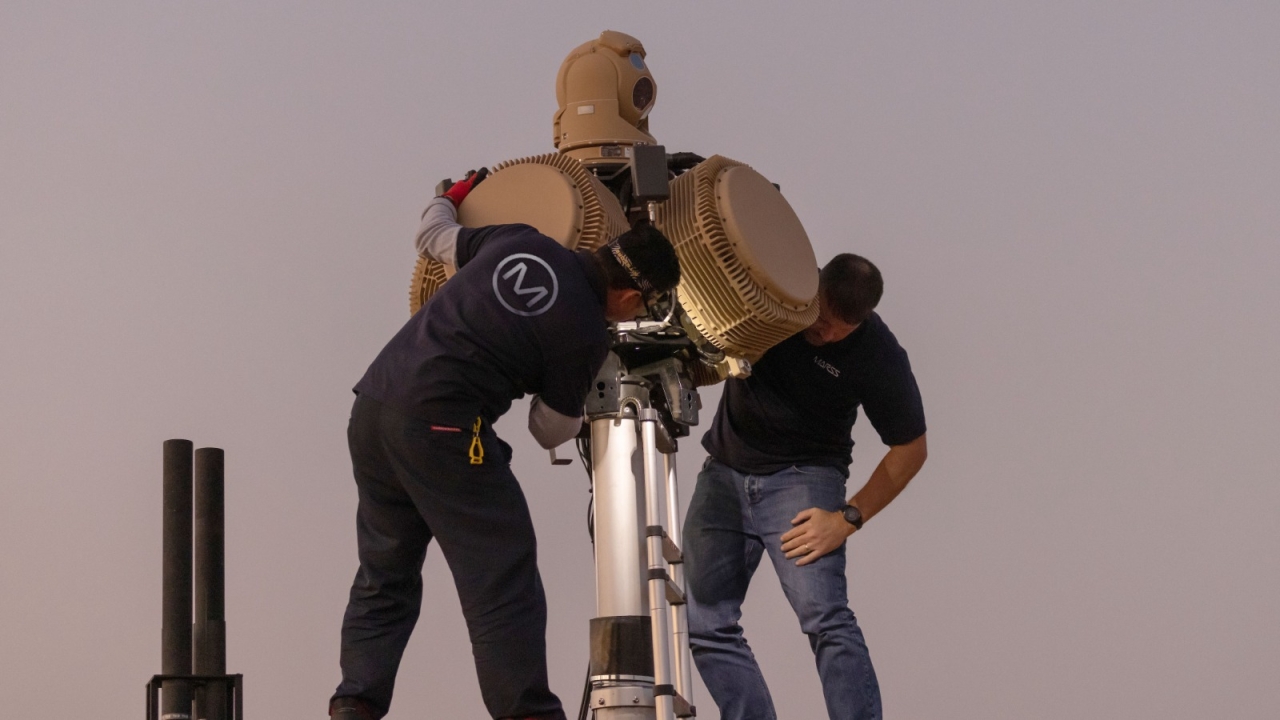Germany stalls Saudi Typhoons
Saudi Arabia has long had a requirement for another batch of Eurofighter Typhoons to augment the 72 aircraft delivered from June 2009 to June 2017.

An RSAF Typhoon on show at the Bahrain International Air Show. Picture: BIAS
Talks for a second batch of 48-72 Typhoons were reported in October 2016, and a memorandum of intent for an additional 48 Typhoons was signed on March 9 2018, during Saudi crown prince Mohammed bin Salman's visit to the United Kingdom. These additional Typhoons would replace the Royal Saudi Air Force’s (RSAF’s) remaining legacy Boeing F-15C Eagle air defence aircraft.
Signing a contract for these aircraft was delayed by the Saudi military intervention in Yemen (which led to a German refusal to support the proposed sale), and by a Royal Saudi Air Force determination that the new batch should be equipped with the Eurofighter common radar system (ECRS) mark two radar and a large area cockpit display, once the development and integration of these items had been completed and they were on order for the UK Royal Air Force.
With these enhancements incorporated, there were even suggestions that the Typhoon requirement could be expanded to more than 100 aircraft, perhaps becoming a replacement for the RSAF’s remaining 70 or so Panavia Tornado interdictors.
On Wednesday July 12 2023, it was announced that the German government had agreed to soften its position on arms exports to Saudi Arabia – but would continue to block Eurofighter Typhoon deliveries. Though the pro-business Free Democratic Party (FDP) urged the coalition government of chancellor Olaf Scholz to reconsider exporting Typhoons to Saudi Arabia, the Greens, another of the coalition partners (alongside Scholz’s Social Democrats, and the FDP) were firmly opposed.
Though Scholz did reach agreement with the Greens and FDP to allow weapon exports to Saudi Arabia “in specific individual cases,” these weapons were not to be employed in Yemen, nor to support potential violations of human rights.
Scholz himself told journalists that the agreement did not change Berlin’s position on Eurofighter deliveries to Saudi Arabia, which thus remained blocked.
“I can tell you that a decision on a Eurofighter delivery to Saudi Arabia is not on the agenda for the foreseeable future,” Scholz said during his closing press conference at the NATO summit in Vilnius.
Government officials subsequently clarified that this meant that there would be no authorisation to export Eurofighters to Saudi Arabia in the current legislative period, which runs until late 2025.
In December last year, France’s La Tribune financial newspaper reported that Saudi Arabia was considering the acquisition of 100-200 Dassault Rafale fighters. This was widely assumed to be as an alternative to the Kingdom’s stalled Typhoon deal, but this may not be the case. Instead, the Rafale may be under consideration as a replacement for the RSAF’s 154 advanced Boeing F-15SAs and F-15SRs. Though deliveries of refurbished F-15SR aircraft are still ongoing, Saudi Arabia is understood to believe that the type will soon need to be replaced.
Saudi Arabia is understood to aspire to operating the Lockheed Martin F-35A Joint Strike Fighter, whose fifth generation characteristics of LO (stealth) and connectivity would revolutionise RSAF capabilities. But although Saudi attempts to acquire the F-35 are ongoing (with reports that Khaled Al Biyari, has been in Washington arguing Mohammed bin Salman's case for F-35 procurement) there may be an acceptance that any such procurement remains many years away, if it is possible at all. There is a significant opposition in Washington, and a belief that an F-35 deal would risk eroding Israel’s congressionally-mandated ‘qualitative military edge’, even if Saudi Arabia were to sign the Abraham Accords and normalise relations with Israel.
Any loosening of Saudi Arabia’s defence relationship with the US would threaten the ‘dual track’ procurement approach that the RSAF has followed up to now, splitting its purchases between the USA and the UK, and a Rafale acquisition might allow a degree of diversity of supply, without requiring the Kingdom to embrace Chinese or Russian military aircraft.
Stay up to date
Subscribe to the free Times Aerospace newsletter and receive the latest content every week. We'll never share your email address.


